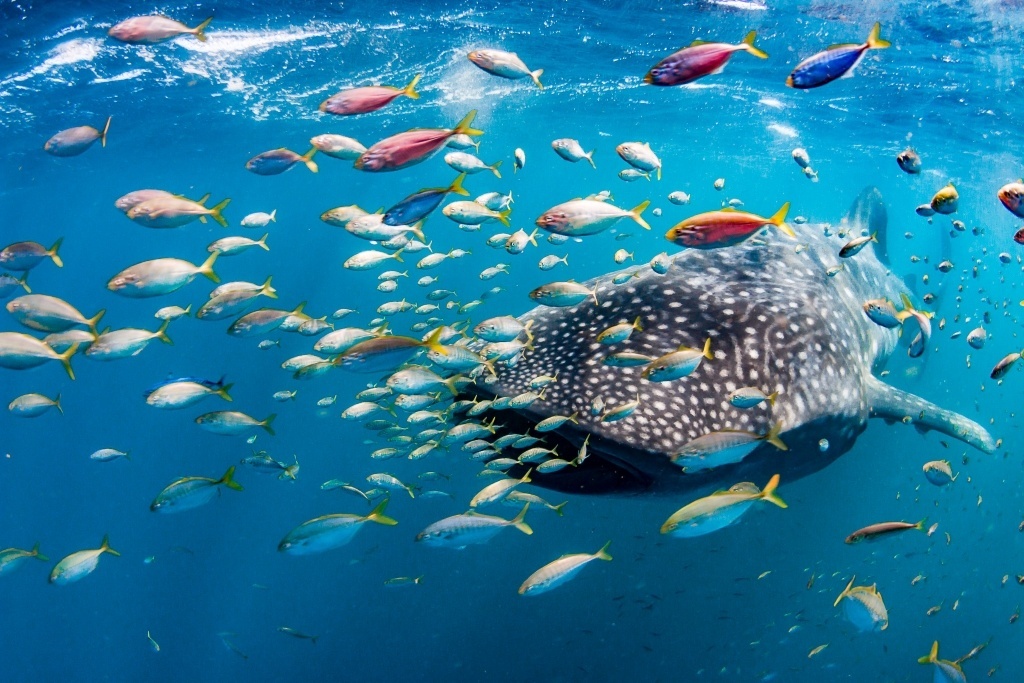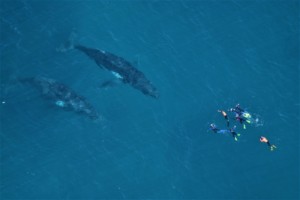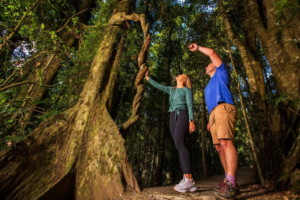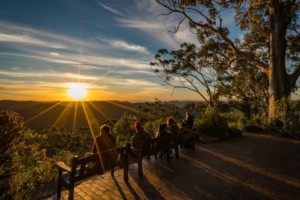When the odds are against you: How a small tour operator survived 2020

From the exciting prospect of a breakout season to the existential threat of bankruptcy, 2020 was a turbulent year for small Australian eco-tour operator Live Ningaloo. In this “Good Tourism” Insight, Sonia Beckwith shares how she and her partner fought to keep their ecotourism dreams alive.
In December 2019 we predicted that 2020 would be our best year yet. After building from a meagre start in 2016 with only one client, we anticipated selling out our entire 2020 whale shark season (mid-March to July) and seeing 30% growth in our humpback whale season (August 1 to October 31). We had planned to bring on two full-time salaried staff for the first time, and scale into other product offerings by the end of 2020.
COVID-19 changed it all.
Within a 15-day period we stood down our entire staff (none of them qualified for JobKeeper, an Australian government subsidy to help employers retain people during COVID lockdowns), cancelled our entire season, and wondered how we were going to carry on.
We were unable to refund all of the guests at once because we had just come off four-and-a-half months of off season. (In remote and regional Western Australia we are used to drastic seasonal swings but we always bounce back into the black within the first month of a new season.)
What were we going to say to our clients? What were we going to do? How were we going get through this?
Having reflected on 2020, several things stick out that helped us survive the year:
1. Act like the brand you’ve talked about and built
Or more simply, stay on brand. It sounds basic and even clichéd, but when the world is upside down it’s easy to react instead of be thoughtful. Before making business decisions, my partner and I have always treated Live Ningaloo as a person who has a seat at the decision table. It’s helped us bring our brand to life over the years and we used the same tactics when crafting messaging. Questions that helped us shape the language were: “How do we want people to feel when interacting with Live Ningaloo? What would we want people to say about Live Ningaloo if we weren’t in the room? What will allow Live Ningaloo to sleep at night?”
2. Learn to embrace vulnerability, communicate transparently
Using refunding as an example, we decided to tell our guests we didn’t have money to repay them all upfront but that we had a plan to do so eventually if that is what they requested. We encouraged them to instead take a gift card or book our following season because that is what we needed to survive. For us this wasn’t about what we were legally obligated to do, but rather what we wanted our brand to stand for. We decided to approach refunding logically, prioritising the return of monies from the earliest tour booked, in our case March, followed by each tour after that. Taking that approach, we found that more than 40% of clients decided to stick with us. We gave them clear ways they could help us and what our plans were. Many were happy to help once they realised we were here to stay.
3. Identify areas where you can be proactive and work on them
When the sky was first falling, it was hard to identify what to do and when. Then we realised we just needed to create some space and time to get our thoughts together. A quick newsletter updating our clientele, alerting them that we would be in contact soon was all it took to slow the initial communications from clients so we could formulate a short and a long-term plan. Time to think is important. Take it.

4. Identify what your real problems are and solve them
Ever wonder what all of those memberships you pay for are for? Now is the time to start learning and then communicating with all of them. We regularly contact all levels of government and membership and tourism organisations to update them on specific problems we are facing along with potential solutions. Taking the time to do this continues to be an evolving process. No one will know what you face better than you. You have to engage the process if you want to see results.
5. Know your numbers
For many, the less flashy side of business is the reporting. Make sure you are basing decisions on what the numbers and data show. It’s more strategic and allows you the most long-term flexibility. If you are unclear about what that means for you and your business, there is free assistance with the small business development centres within each state [in Australia] and many of the membership organisations you are already plugged into can help with resources or put you in touch with people / organisations that can help you.
6. Be a helper
You won’t always be able to move mountains, but there is always something to do that can be helpful. It might be as simple as a quick call to let a colleague know you are thinking about them.
All of the points above got us through 2020 but will also be what we employ for 2021. None of them are revolutionary. The point is that small steps often lead to large momentum. Taking small steps consistently is key in the new environment and will be the difference between surviving and thriving in the end.
What do you think? Share a short anecdote or comment below. Or write a deeper “GT” Insight. The “Good Tourism” Blog welcomes diversity of opinion and perspective about travel & tourism because travel & tourism is everyone’s business.
Featured image (top of post): Turtle, Ningaloo Reef, Western Australia, Australia. Image by Chris Jansen supplied by Live Ningaloo.
About the author

After adventuring in Australia, in 2016 Sonia Beckwith settled with her partner in remote Exmouth, Western Australia to start ecotourism company Live Ningaloo.
Born and raised in the USA, Ms Beckwith has worked in all sorts of roles, including communications, project management, customer relationship management, and general management in the not-for-profit, private, and corporate sectors.
In her own words: “It’s my personal mission to help others move the needle every day in their tourism and business endeavours. I’m interested in bringing people to the table who would normally not dine together. I believe in strengthening communication between like minds and opposing views, then finding a way to work together to achieve something.
“If you are a mover and shaker you’ll like me, if you aren’t, you’ll at least be entertained.”





